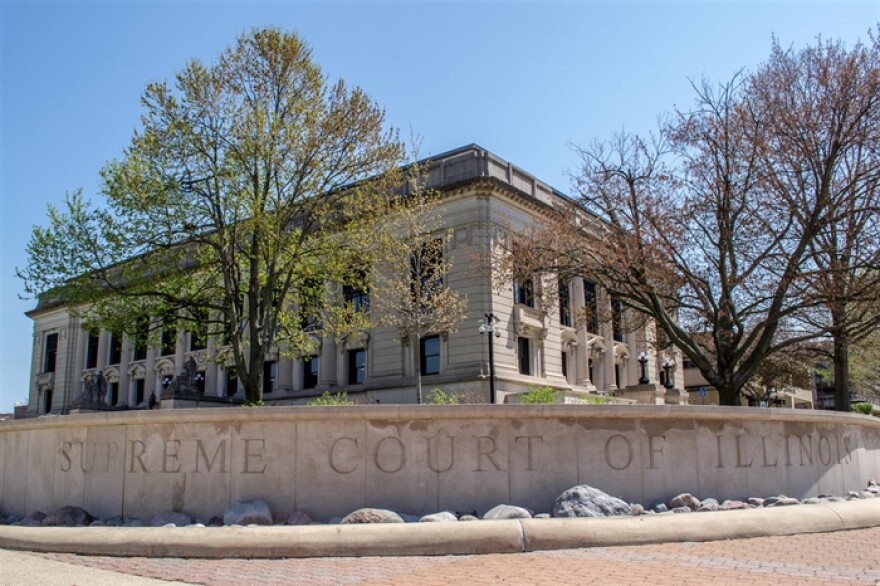Beginning on September 18 the cash bail system in Illinois is abolished. State’s attorneys, public defenders and sheriff’s offices across the state prepare for the changes, as questions linger on how some aspects of the law will pan out.
DeKalb County State’s Attorney Rick Amato was part of the lawsuit challenging the constitutionality of the end to cash bail. Ultimately, the Illinois Supreme Court ruled that eliminating cash bail did not violate the state constitution.
Amato said his focus now turns to implementing the law.
“The intent of this is to eliminate cash bail, to not criminalize poverty and, and giving wealth, [a] leg up in the system,” Amato said.
“I think everybody agrees that's good, but then how it gets applied and how people push it, that's to be determined.”
Amato says one of those things to be determined is how non-detainable offenses are handled.
Under the Safe-T Act, folks suspected of committing Class B and Class C misdemeanors will receive a citation for a later court date.
“Disorderly conduct cases are another one, assaults are another,” he said, “that are Class B, or class C, depending on situation.”
Trespassing would also fit in that category, although if a person is deemed dangerous -- regardless of the violation -- law enforcement can arrest them.
“The statute says that, but what does that mean in the definition?” Amato said. “It hasn't been defined. So, what you're gonna have is officers having to make those calls.”
He says much of how the law is applied will be figured out at the appellate court level as prosecutors and defense lawyers alike appeal their cases. The judges’ rulings will then determine the scope and the application of the law.
In the meantime, he said, “There isn't a definition that's going to tell them what, what was the right time to deem them dangerous or not.”
On the part of prosecutors, he said the law requires more work.
Prosecutors will be required to petition a judge if they seek to hold a suspect in pretrial detention under the primary basis that the individual is deemed a danger to the community.
The burden of proof also lies on prosecutors to provide the evidence when making the petition.
“So we're stretching now back to the front of the case just for detention or not detention,” Amato said.
“There's only so much time in the day, there's only so many workers in office, that can continue to focus on make sure we're getting the resolutions we need to keep our community safe.”
He said it’s likely he’ll bring on more staff to meet the requirements of the law.
DeKalb County Sheriff Andrew Sullivan said his office also will likely need more dedicated staff, especially in their civil process division.
“Serving summonses to people for missing court or the charges that they've been accused of in that matter, that's going to increase, I think, drastically for us,” Sullivan said, “which will be taxing, but we'll get through it.”
He said the sheriff’s office has already taken steps to be in compliance under the law, such as the use of body cameras and additional trainings to comply with other aspects of the Act.
“So, I think the biggest thing is just going to be in how arrests are handled and processed in the future, and, obviously, civil processes,” Sullivan said. “And then, we just want to make sure that our victims are taken care of.”
Domestic violence cases
Some of the opposition to the Safe-T Act lie in concerns of how the law may affect victims of crime. But advocate groups for survivors of domestic violence such as the Illinois Coalition Against Domestic Violence stand in support of the law.
Under the Act, suspects of domestic violence are subject to detention and not a citation.
Amato said that’s a big difference from how domestic violence cases are currently being handled.
“I feel that it's not necessarily fair to detain somebody on a first offense, because we're not doing it now," Amato said.
“But all bets are kind of off under the new law. We’ll see how it gets applied. And we have to look at the threat to the safety of the person involved in that situation.”
WNIJ reached out to Winnebago County’s State’s Attorney J. Hanley office for an interview, but he declined. A statement on of the office’s Facebook page provides in part the following:
“Prior to the Supreme Court delaying the January 1, 2023 effective date of the pretrial fairness portions of the Act, our Office had been diligently working with our criminal justice partners for months to ensure that we were ready to implement this new law. It is time to get back to work. We only have sixty days to ready ourselves for the significant changes that will come with this law. As your State’s Attorney, I will continue to enforce the law and our Office will work tirelessly to ensure that those who present a risk of safety to the community remain behind bars while awaiting trial.”






